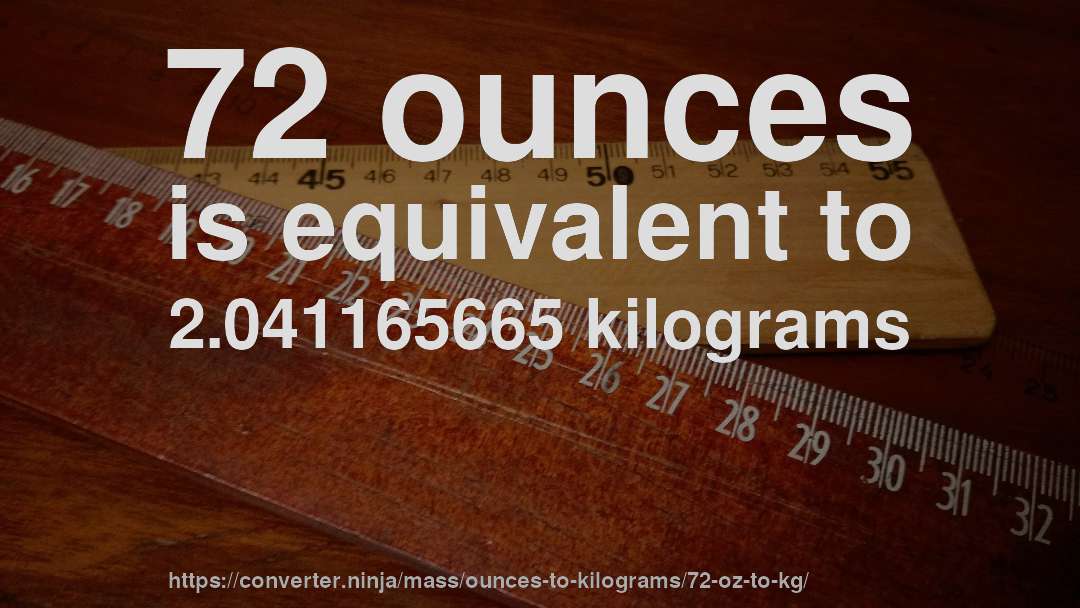
72 ounces is equivalent to 2.041165665 kilograms.
We know (by definition) that: 1 oz ≈ 0.028349523 kg
We can set up a proportion to solve for the number of kilograms.
1 oz 72 oz ≈ 0.028349523 kg x kgNow, we cross multiply to solve for our unknown x:
x kg ≈ 72 oz 1 oz * 0.028349523 kg → x kg ≈ 2.041165656 kgConclusion: 72 oz ≈ 2.041165656 kg
The inverse of the conversion factor is that 1 kilogram is equal to 0.489916138188617 times 72 ounces.
It can also be expressed as: 72 ounces is equal to 1 0.489916138188617 kilograms.
Approximation
An approximate numerical result would be: seventy-two ounces is about two point zero four kilograms, or alternatively, a kilogram is about zero point four nine times seventy-two ounces.
Units involved
This is how the units in this conversion are defined:
Ounces
The ounce (abbreviated oz) is a unit of mass used in most British derived customary systems of measurement. It is most pervasive in the retail sale of groceries in the United States, but is also used in many other matters of domestic and international trade between imperial or customary measurement driven countries. Similar customary uses include recipes in cookbooks and sales of bulk dry goods. Whilst various definitions have been used throughout history, two remain in common use, the avoirdupois ounce equal to approximately 28.3 grams and the troy ounce of about 31.1 grams. The avoirdupois ounce is widely used as part of the United States customary and British imperial systems, but the troy ounce is now only commonly used for the mass of precious metals such as gold, silver, platinum, palladium, rhodium, etc..
Kilograms
The kilogram is the base unit of mass in the International System of Units (the Metric system) and is defined as being equal to the mass of the International Prototype of the Kilogram. The avoirdupois (or international) pound, used in both the imperial and US customary systems, is defined as exactly 0.45359237 kg, making one kilogram approximately equal to 2.2046 avoirdupois pounds. Other traditional units of weight and mass around the world are also defined in terms of the kilogram, making the IPK the primary standard for virtually all units of mass on Earth.
[1] The precision is 15 significant digits (fourteen digits to the right of the decimal point).
Results may contain small errors due to the use of floating point arithmetic.ncG1vNJzZmibn6PDpr7Tnqlnppmjt6J7zJqqrGefqruksdJmq6hlm565sLPRmqSsZ2dnerDGjK2mZqOXZA%3D%3D